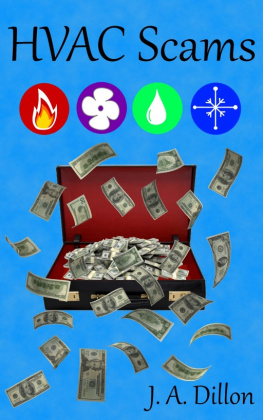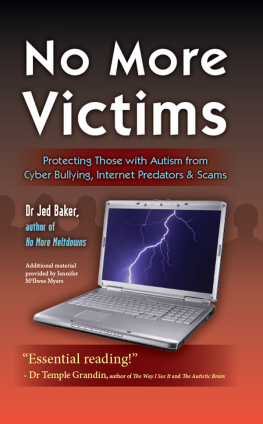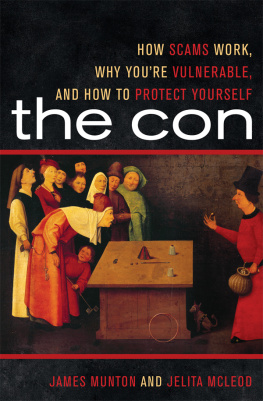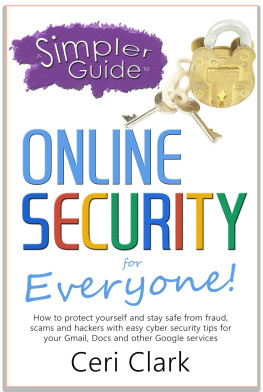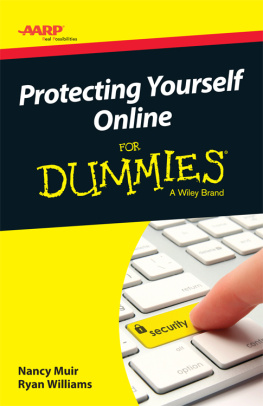I will like to express my tremendous gratitude to the people I spoke to in the course of writing this book, those who have been a victim , those who had one time in their life perpetrated the credit card fraud or any of the internet scams and also those websites and blogs I used as reference for the scam letter samples.
This book stemmed out of the need to educate unsuspecting victims all over the world, guide them along a path that would ensure they do not fall a victim to the scammers on prowl out there in the larger fish pond.
Introduction
Scams have always been in existence since the 18th century and when the internet came it arrived with a lot of positivity, but later we saw conmen taking advantage of the invention, so they innovated and transformed their con strategy and plots which is being used to scam unsuspecting victims via the internet.
The entry level for internet scam now is so low that anyone that can use a computer could possibly learn how to scam and send out over 10,000 emails and wait for 10 people to respond to the emails and their plots will be initiated.
Many of the unsuspecting victims could have been easily scammed because they were not aware of the schemes deployed by the scammers, but some other people are scammed because they were greedy and they fell for the scammers, have you imagined what happens to a man that was sent a mail and he was told that his name was found in the will of a man from Texas he does not know and the scammers are asking him to send some money in order to process the inheritance fund, he sends processing , insurance and administrative fees only to discover he was scammed, the victim does not report the case to the authorities because he knows anyone who hears the story will not have pity on him because he was greedy, so he keeps it to himself and it is not added to the world statistics on internet scams.
The alarming rate at which unsuspecting victims fall for these scams shows that many victims are not equipped with the guide to help them recognize the scams when they are sent as emails, in order for the unsuspecting victims not to go through with the requests from the emails. This book is geared towards helping everyone stay alert and not fall for the internet scams.
Anyone can fall for an internet scam, the young to the old, from professors to lawyers, businessmen to financial experts, men and women, virtually everyone is liable to fall for internet scams. You need to have a guide to assist you in surfing the web, shopping, sending emails etc.
You will find this book very interesting and helpful, it is a book you need to buy for your dad, mum, siblings, uncles, aunties, friends, colleagues and even a boss that shops , transacts business online, books hotels and travels a lot. All those who have a very high level of vulnerability can easily be fell by the plot of the scammer, so you need this book to prepare for the whirlwind that lies ahead.
Reading this book will make you develop some paranoia whenever you want to reply emails from unknown sources or making payment with your card online, when you go through the many scam stories you will see in the chapter dedicated to possible internet scams.
Scam vulnerability quiz
Im not nave to think this is the first book you have read on internet fraud/scam, and I know you have read so many other books on internet fraud/scam so that you can be aware of the vices employed by the scammers. Some of you might have received scam letters and emails by scammers in the past, also some of you might have been scammed/duped. Take a few minutes to go through the quiz below and see if you can answer them with all sincerity.
As you go through the quiz below, put a mark where appropriate as it applies to you.
Check everything that applies and be a hard grader.
Have you ever received a scam mail?
Do you have a credit/debit card?
Do you plan to shop online?
Have you ever given out your credit/debit card details online?
Do you always visit ecommerce websites, even if you have never bought anything?
Do you get emails from companies advertising their products that can be purchased online?
In a month do you get between 4 and 10 scam mails?
You have changed your email address (free mail service) several times due to scam mails being sent to you.
You have replied suspected scam mails in the past.
You hold back personal information when you reply scam letters.
You have once fallen victim by losing money to fraudsters.
You have once changed your credit card because your credit card information was given out.
Chapter 1: The Fraud: Conventional and Internet
Internet fraud is basically the use of internet services to scam or defraud unsuspecting victims. Scammers had always scammed unsuspecting victims before the advent of the internet and this dates back to as far as over 120 years, sometime in the 18th century.
Advance fee scam started a long time ago as far back as the 18th century as I mentioned earlier, the conmen contacted their victims via posting mails and the victims were targeted and scammed, they needed to know the name or address of the victim they picked unlike what happens now where they can reach out through job boards, forums, social media and expect any unsuspecting victim to fall for their scam.
In some cases you could be wondering how they got your email address, the scammers scan through the web for email addresses using email extractors and then they have a large database to reach out to.
The Spanish prisoner scam started sometime around the 18th century, the scammer or fraudster tells the unsuspecting victim who is also referred to as his mark, that he has access to a high net worth individual who has been imprisoned in spain under a false identity.
The scammer tells the unsuspecting victims that he needs to raise money to secure the release of the imprisoned man before his identity is revealed, because his identity should never be revealed.
The victim is told that he/she should send money over for this cause, and when the prisoner is released the victim will be financially rewarded. The request for money will continue until the victim feels he/she has spent a lot and eventually declines further payment.
The advance fee fraud seemed to have had a smooth transition from pre-internet fraud age to internet age. Earlier before the advent of internet fraud you needed to know your victims name before you address the letter to him/her or have the address or location, but right now the internet medium is so perfect for their scam, thereby making their scamming operation smooth, the fraudster still gets to be anonymous and thousands of emails are sent out to unsuspecting victims.


